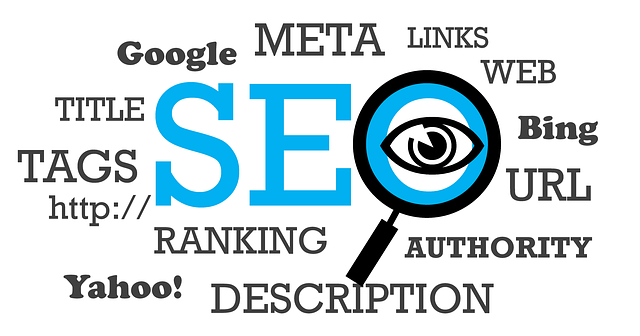Link building is a critical strategy for e-commerce businesses to boost online presence and drive traffic by improving search engine rankings through high-quality backlinks from reputable, industry-related websites. Success involves creating valuable content, identifying influencers, optimizing on-page SEO, focusing on quality over quantity, monitoring performance with tools like Google Search Console and Ahrefs, understanding user intent, and tracking KPIs such as Domain Authority and click-through rates to ensure a robust, natural backlink profile.
In the competitive e-commerce landscape, effective link building is a powerful tool to drive organic traffic and boost sales. This comprehensive guide unravels the art of link building tailored for online stores. We’ll explore essential strategies, from identifying high-quality backlinks to on-site optimization techniques, ensuring your e-commerce site gains authority and visibility. Learn how to navigate off-page SEO, analyze results, avoid pitfalls, and measure the success of your link-building campaigns. Master these tactics to revolutionize your online store’s performance through strategic link building.
Understanding Link Building for E-commerce: The Basics

Link building is a crucial strategy for e-commerce businesses aiming to boost their online visibility and drive traffic. At its core, it involves acquiring backlinks from other websites, which serve as digital references pointing to your e-commerce site. These links carry weight in the eyes of search engines like Google, influencing your website’s ranking in search results. The basic principle is simple: the more high-quality, relevant links you have, the higher your site appears in search rankings, attracting more potential customers.
E-commerce platforms often face unique challenges when it comes to link building due to their competitive nature and diverse customer bases. Effective strategies include creating compelling content that naturally attracts backlinks, such as product reviews, how-to guides, or exclusive industry insights. Engaging with influencers and industry partners can also foster valuable collaborations, leading to relevant backlinks from reputable sources. Additionally, optimizing your site for mobile users and ensuring a seamless shopping experience encourages user-generated links through positive reviews and social shares.
Identifying Relevant and High-Quality Backlinks

Identifying relevant and high-quality backlinks is a strategic step in effective link building for e-commerce sites. These links should be sourced from authoritative, reputable, and industry-related websites that align with your target audience’s interests. When evaluating potential backlinks, focus on their relevance to your niche and the quality of the content they are associated with. High-quality backlinks typically come from well-established, trusted sources, such as industry leaders, influential blogs, or government/educational institutions.
Relevant backlinks not only drive traffic but also boost your site’s credibility in the eyes of search engines. They signal to search algorithms that your e-commerce platform provides valuable content and is a reliable resource for users. This can significantly enhance your website’s ranking and visibility in organic search results, ultimately driving more targeted traffic and increasing sales conversions.
Strategies to Acquire Quality Links: A Comprehensive Guide

Building high-quality backlinks is an art and a vital strategy in the e-commerce world to boost search engine rankings. So, where do you begin? Well, it’s about creating valuable content that naturally attracts links from reputable sources. One effective approach is to identify industry influencers and bloggers who can benefit from your expertise; offer them exclusive access or insights in exchange for a mention or review. This strategy leverages the power of word-of-mouth marketing in the digital realm.
Additionally, guest blogging on popular industry sites is a proven method. By contributing informative articles relevant to your niche, you can secure a link back to your store while establishing yourself as an authority. Remember, quality trumps quantity; focus on earning links from influential websites that align with your e-commerce brand’s reputation and target audience.
On-Site Optimization: Preparing Your E-commerce Site for Links

Before you can effectively start building links, your e-commerce site needs to be optimized on-site to ensure that it’s a valuable asset for both users and search engines. This includes enhancing your website’s structure, content, and performance to make it easier for visitors and search crawlers to navigate and understand. A well-organized site hierarchy with clear categories and subcategories makes it simpler for customers to browse and locate products, reducing bounce rates.
Additionally, optimizing meta titles, descriptions, and headers ensures that your product pages convey relevant keywords and compelling calls to action. High-quality, unique content that provides value to visitors is also crucial for on-page SEO. This involves writing detailed product descriptions, incorporating customer reviews, and creating blog posts or articles that engage your target audience and establish your brand as an authority in your niche. Such efforts not only attract organic traffic but also provide anchor text opportunities for future link-building endeavors.
Off-Page SEO: Building a Solid External Link Profile

Off-page SEO is an integral part of any successful e-commerce strategy, and at its heart lies link building. Building a solid external link profile involves attracting high-quality backlinks from reputable sources relevant to your niche. These links act as votes of confidence in the eyes of search engines, signaling that your site offers valuable content and resources. A well-rounded off-page SEO strategy should focus on acquiring links from diverse and authoritative websites, such as industry leaders, reputable blogs, and influential news outlets.
E-commerce businesses can enhance their link-building efforts by identifying relevant directories, guest blogging opportunities, and collaboration with influencers or industry experts. Engaging in these practices not only increases brand visibility but also drives targeted traffic back to your site. Remember, the quality of links matters more than quantity; a single high-authority link from a respected source can carry more weight than multiple links from lesser-known or irrelevant websites.
Analyzing and Monitoring Your Link Building Efforts

Analyzing your link-building efforts is a critical step in understanding what’s working and where improvements are needed. Keep an eye on both the quantity and quality of backlinks. Tools like Google Search Console and Ahrefs can help monitor new links, their sources, and any potential issues like spam or toxicity. Regularly review your backlink profile to identify top-performing link acquisition strategies, such as guest blogging, influencer partnerships, or content updates that attracted natural links.
Monitoring allows you to stay agile and adjust your E-commerce SEO strategy accordingly. Keep an ear to the ground for industry trends and competitor activities. Identify high-authority websites in your niche and explore opportunities for collaboration or content promotion. Remember, a strong link-building strategy is an ongoing process that demands consistent effort, adaptability, and a keen eye for detail.
Common Mistakes in E-commerce Link Building and How to Avoid Them

Many e-commerce businesses fall into common pitfalls when it comes to link building, often due to a lack of strategic planning and an understanding of user intent. One of the biggest mistakes is focusing solely on quantity over quality. While acquiring numerous links might seem appealing, these low-quality backlinks can negatively impact your site’s authority and search rankings. Instead, prioritize building high-value inbound links from reputable and relevant websites within your industry. These authoritative sources carry more weight with search engines and signal to users that your e-commerce platform is a trusted resource.
Another blunder is neglecting the user experience (UX) aspect of link building. When incorporating links into your site’s content, ensure they enhance the overall UX. Links should guide users towards relevant product pages or valuable information, not distract from their shopping journey. Additionally, avoid excessive keyword stuffing in anchor texts, as it can raise red flags with search engines. Keep anchor text natural and vary them to maintain a healthy backlink profile, thereby avoiding potential penalties and fostering a more seamless user experience.
Measuring Success: Key Performance Indicators for Link Building Campaigns

Measuring success is a critical aspect of any Link Building campaign, as it helps to understand what strategies are working and where improvements can be made. Key Performance Indicators (KPIs) for link building should focus on both the quality and quantity of incoming links. One of the most important metrics is Domain Authority (DA), which measures the overall trustworthiness and authority of a website. High-quality backlinks from authoritative sites significantly boost your e-commerce store’s DA, improving its search engine rankings.
Another essential KPI is the number of unique referring domains. This indicates the diversity of websites linking to your e-commerce platform. A diverse backlink profile suggests that your brand is engaging with a wide range of online communities and industries, which can enhance credibility and visibility. Additionally, tracking click-through rates (CTRs) from backlinks can provide insights into the attractiveness of your content to potential visitors, helping you optimize future link building efforts.
